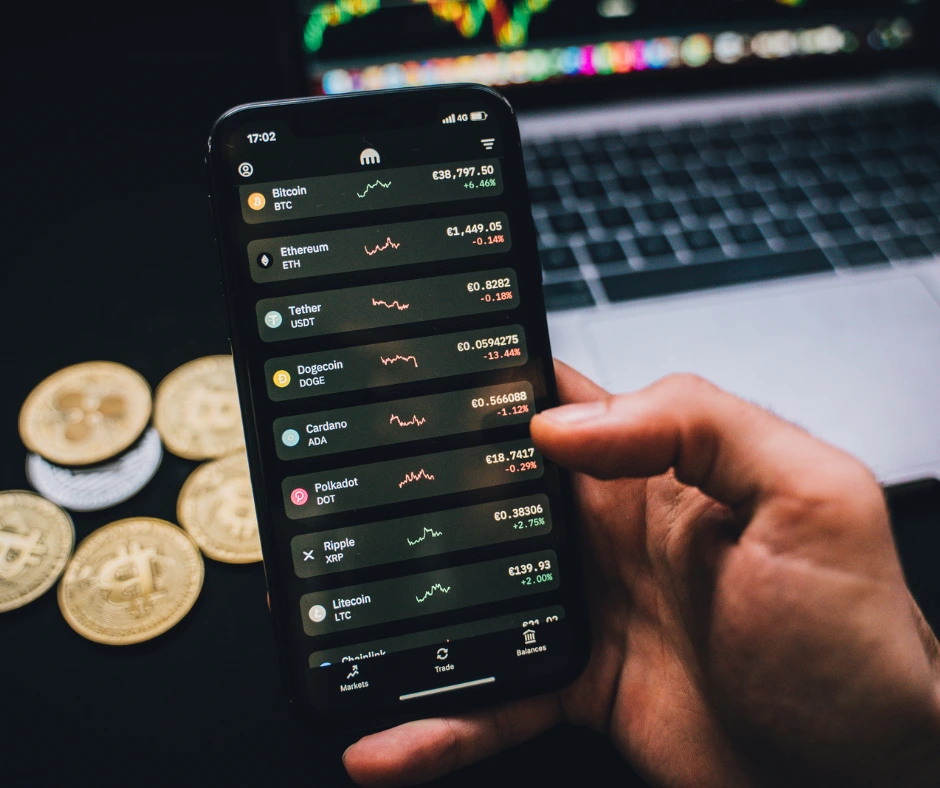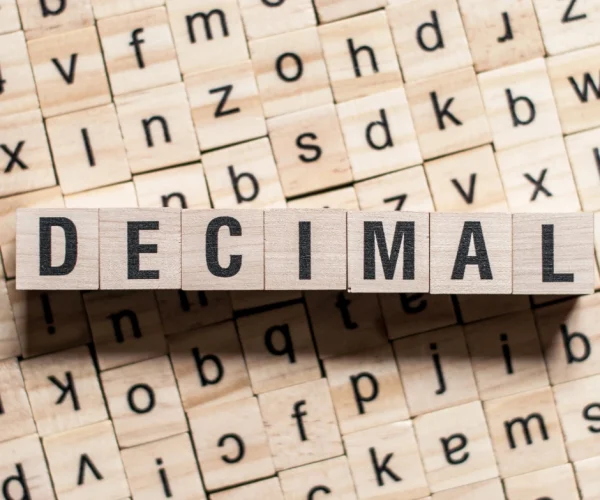Introduction
As you navigate the world of cryptocurrency, you may encounter the term “decimal” and wonder what it means. Understanding decimal in cryptocurrency is crucial, as it impacts the accuracy of transactions and calculations. Essentially, decimal refers to the number of digits to the right of the decimal point in a cryptocurrency value.
For example, Bitcoin has eight decimal places, meaning that one Bitcoin can be divided into 100,000,000 smaller units known as satoshis. Ethereum, on the other hand, has 18 decimal places, meaning that one Ether can be divided into 100,000,000,000,000,000 smaller units known as wei.
By understanding decimal in cryptocurrency, you can better navigate exchanges, wallets, and transactions, ensuring that you are accurately buying, selling, and transferring crypto.
Key Takeaways:
- Decimal refers to the number of digits to the right of the decimal point in a cryptocurrency value.
- Bitcoin has eight decimal places, while Ethereum has 18.
- Understanding decimal in cryptocurrency is crucial for accurate transactions and calculations.
The Role of Decimal Places in Cryptocurrency
Have you ever wondered why cryptocurrencies are often expressed in decimals? In the world of cryptocurrency, decimal places play a crucial role in transactions and calculations. Understanding the importance of decimals in cryptocurrency is key to navigating the decentralized digital currency landscape.
Decimal places in cryptocurrency refer to the digits after the decimal point in a cryptocurrency value. For example, Bitcoin is divisible up to eight decimal places, with the smallest unit being 0.00000001 BTC, also known as a Satoshi. This allows for transactions of even the smallest amounts of cryptocurrency, making it accessible to everyone.
The importance of decimals in cryptocurrency goes beyond just facilitating transactions. Decimal places also impact the accuracy of cryptocurrency prices and values. Without decimal places, it would be difficult to compare the value of different cryptocurrencies.
Furthermore, decimal places can influence the perception of a cryptocurrency’s value. For example, a coin that is priced at $0.001 might seem cheaper than one that is priced at $1, but the difference could actually be just a matter of decimal places.
| Decimal Places | Value |
|---|---|
| 0 | 1 |
| 1 | 0.1 |
| 2 | 0.01 |
| 3 | 0.001 |
Understanding decimal places in cryptocurrency is especially crucial for traders and investors. When trading cryptocurrencies, it is important to pay attention to the number of decimal places to ensure that transactions are accurate and that no rounding errors occur.
In conclusion, decimal places play a vital role in the world of cryptocurrency. Their importance goes beyond just facilitating transactions; they impact the accuracy of cryptocurrency prices and values, as well as influence the perception of a cryptocurrency’s value. Therefore, understanding the significance of decimals in cryptocurrency is essential for anyone looking to navigate the crypto ecosystem with confidence.

The Decimal System in Cryptocurrency
Decimal plays a significant role in the cryptocurrency system. It is used to define the smallest unit of a cryptocurrency. In other words, the decimal system determines the precision of a cryptocurrency. For instance, Bitcoin’s smallest decimal place is called Satoshi, which represents 0.00000001 BTC.
The Crypto decimal system differs from traditional decimal systems as it uses a base-16 numeral system, also called the hexadecimal system. The base-16 numeral system uses 16 symbols, namely 0-9 and A-F. The use of base-16 allows for the representation of large numbers in fewer digits, making it more efficient in the cryptocurrency system.

Moreover, the use of the decimal system in cryptocurrency ensures that transactions and calculations are carried out accurately. It helps to avoid errors in decimal points, which can lead to significant losses.
In conclusion, understanding the decimal system in cryptocurrency is crucial to anyone who wants to engage in crypto transactions. It’s important to note the base-16 numeral system and the precision that it provides. Having a clear grasp of the crypto decimal system can help you make informed decisions and avoid potential losses.
Decimal Precision in Cryptocurrencies
Decimal precision is a critical factor to consider in cryptocurrency. The level of accuracy in decimal places can impact the value of your transactions, fees, and even the amount of cryptocurrency you hold. It is important to understand the implications of decimal precision to ensure accuracy in your transactions and to avoid potential losses.
| Decimal Precision | Value |
|---|---|
| 1 | 0.1 |
| 2 | 0.01 |
| 3 | 0.001 |
The above table demonstrates the relationship between decimal precision and value. As you increase decimal precision, the value of each unit decreases. For instance, with a decimal precision of 2, one unit is worth 0.01, while with a decimal precision of 3, one unit is worth 0.001. Thus, the value of each unit is directly correlated to the level of decimal precision.
It is essential to use the correct decimal precision when making transactions, as using the wrong decimal point can result in significant losses. For example, if you mistakenly use a decimal precision of 1 instead of 2, you could potentially lose 90% of your intended transaction value. Therefore, it is crucial to double-check the decimal precision when making transactions.

Decimal precision is also a crucial factor in determining transaction fees, as it affects the amount of cryptocurrency required to complete a transaction. The higher the decimal precision, the more cryptocurrency is required to pay transaction fees, which can impact your overall transaction value.
Overall, decimal precision is a crucial factor to consider in cryptocurrency transactions. It can impact the accuracy of your transactions, fees, and the amount of cryptocurrency you hold. Therefore, it is important to understand the implications of decimal precision to ensure accuracy in your transactions and to avoid potential losses.
Understanding Decimal Points in Cryptocurrency
Decimal points are a fundamental aspect of cryptocurrency that plays a significant role in transactions and calculations. In essence, decimal points represent a fractional unit of a cryptocurrency that is smaller than a whole unit. An example of this is Bitcoin, which can be divided into 100 million units, with each unit being one satoshi. A satoshi is therefore the smallest unit of bitcoin that can be traded.
The use of decimal points in cryptocurrencies is vital as it makes it possible to transact with fractions of a whole unit. For instance, imagine you need to purchase something that costs 0.25 Bitcoin. With the help of decimal points, you can transact using 0.25 Bitcoin, which would be equal to 25,000,000 satoshis (0.25 X 100,000,000). This demonstrates how important decimal points are in cryptocurrency transactions.
It is also worth noting that decimal points in cryptocurrencies have a significant impact on overall transaction fees. Transactions with smaller decimal points generally attract lower fees compared to transactions with more decimal points. This makes it essential to consider the decimal points that you intend to utilize before making any transactions. Ensure that you use the appropriate decimal points to avoid being charged exorbitant transaction fees.
When it comes to interpreting decimal points, it is essential to keep in mind that different cryptocurrencies may have different decimal points. For instance, the decimal point for Bitcoin is eight, while for Ripple, it is six. It is, therefore, crucial to confirm the specific decimal points for the cryptocurrency you intend to use before making any transactions. This will help you avoid any errors in your transactions.

Understanding decimal points in cryptocurrency is critical in ensuring you transact accurately and efficiently. As such, it is essential to take time and familiarize yourself with the decimal points associated with the cryptocurrency you intend to use. This will simplify your transactions and help avoid any costly mistakes.
The Implications of Decimal in Cryptocurrency
Understanding decimal in cryptocurrency is vital for accurate transactions and calculations. However, there are certain implications to consider when dealing with decimals in cryptocurrency that are not present in traditional decimal systems.
One of the main implications of decimals in cryptocurrency is the potential for rounding errors. Due to the high value of some cryptocurrencies, even a small rounding error can result in significant financial losses.
Another implication to consider is the significance of decimal choices in transactions. Choosing the wrong decimal point can result in the transaction being rejected or even lost entirely. It is crucial to double-check the decimal choices before making any transactions.
Decimal precision is also an important consideration in cryptocurrency. The precision of decimals used can have an impact on the accuracy of transactions and calculations. For example, if the precision of decimals used is too low, it may result in inaccurate calculations.
Overall, the implications of decimals in cryptocurrency are significant and require careful consideration. It is crucial to ensure that all decimal choices are correct and that decimal precision is appropriate for the intended purpose.

Conclusion
Understanding the concept of decimal in cryptocurrency is crucial for anyone wishing to engage with the crypto ecosystem. As we have explored in this article, decimal places play a significant role in facilitating accurate transactions and calculations within the system.
By comprehending the differences between traditional decimal systems and the decimal system used in cryptocurrency, you can avoid potential rounding errors and make informed choices when it comes to decimal precision in your transactions.
It is important to note that the significance of decimal choices in cryptocurrency cannot be overstated. Even small differences in decimal points can result in significant variations in the value of your transactions. By understanding the implications of decimal in cryptocurrency, you can make informed decisions that help to maximize the value of your investments.
In conclusion, we hope that this article has provided a comprehensive and informative overview of the concept of decimal in cryptocurrency. By embracing this knowledge, you can navigate the crypto ecosystem with confidence and make the most of your investments.
FAQ
Q: What does decimal mean in cryptocurrency?
A: Decimal in cryptocurrency refers to the number of decimal places used to represent fractions of a cryptocurrency unit. It determines the precision and accuracy of transactions and calculations within the crypto ecosystem.
Q: What is the role of decimal places in cryptocurrency?
A: Decimal places in cryptocurrency play a crucial role in facilitating transactions and calculations. They allow for precise and accurate representation of fractional amounts and enable seamless trading and exchange of cryptocurrency.
Q: How is the decimal system used in cryptocurrency?
A: The decimal system in cryptocurrency is used to determine the number of decimal places used for representing fractional amounts. This differs from traditional decimal systems as it is specific to the cryptocurrency ecosystem and its unique requirements.
Q: Why is decimal precision important in cryptocurrencies?
A: Decimal precision is important in cryptocurrencies as it ensures the accuracy and reliability of transactions and calculations. It minimizes rounding errors and allows for precise tracking of cryptocurrency amounts.
Q: What are decimal points in cryptocurrency?
A: Decimal points in cryptocurrency refer to the specific positions within a number where the digit representing the fractional amount is located. They indicate the precision and granularity of the cryptocurrency unit.
Q: What are the implications of decimal in cryptocurrency?
A: The implications of decimal in cryptocurrency include potential rounding errors, the importance of decimal choices in transactions, and the need for careful consideration of decimal precision to ensure accurate and reliable cryptocurrency operations.
